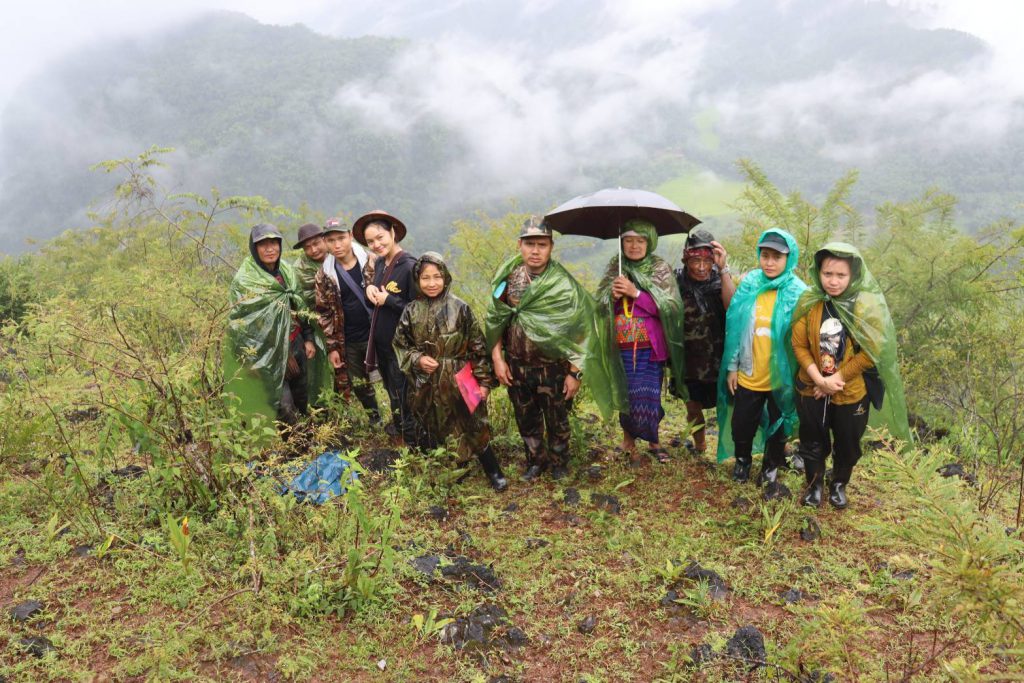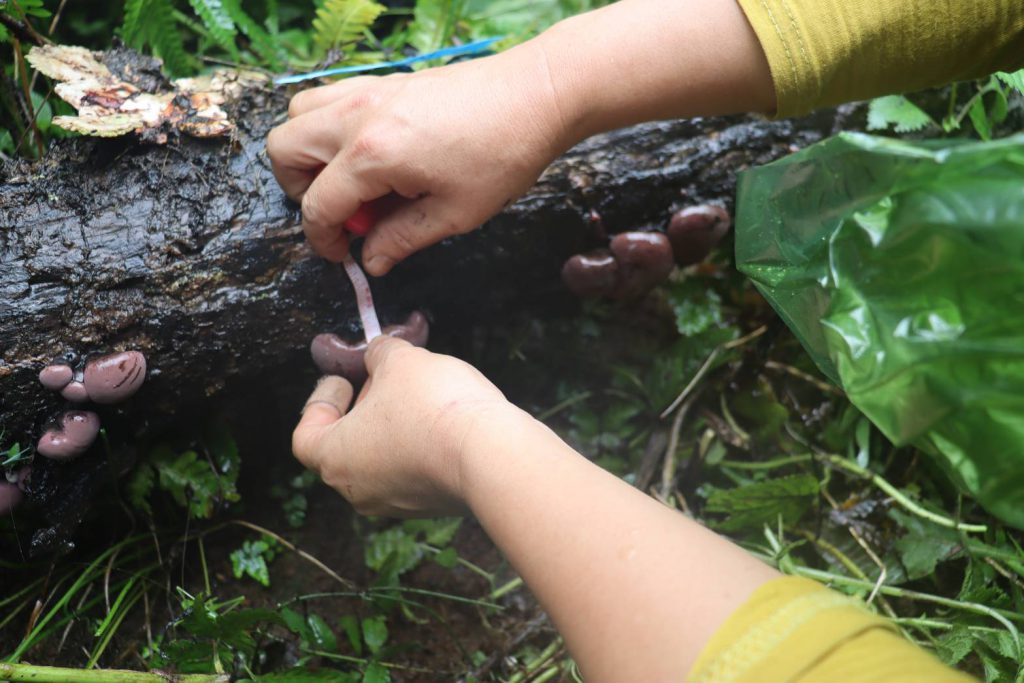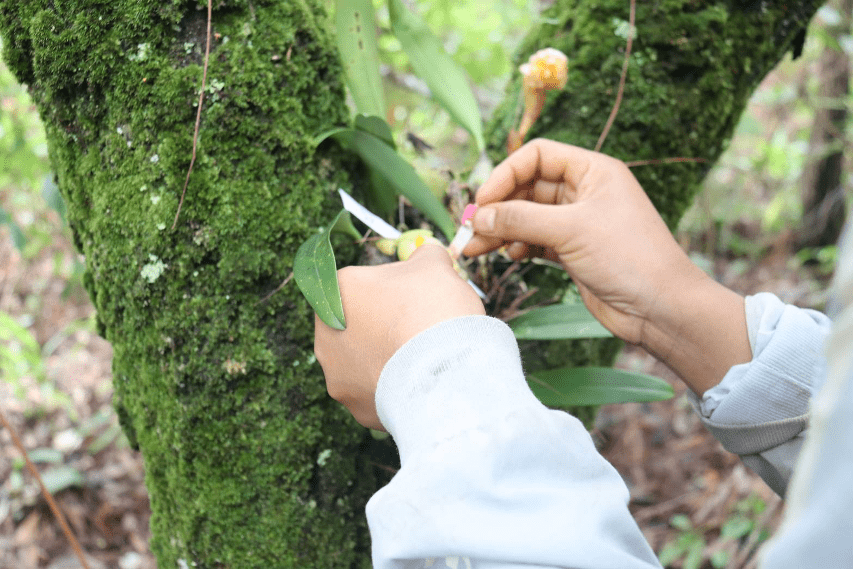TEXT AND IMAGES BY Charlotte (Lotty) Clare, Karen Environmental Social Action Network (KESAN)
Cover photo: The Women Research Team recording measurements of an orchid species
The Salween Peace Park (SPP) spans over 6,000 square km of biodiverse landscape in Mutraw district, Kawthoolei, Myanmar. It is managed sustainably by Indigenous Karen communities through an inclusive democratic governance structure that provides spaces for local people and leaders to converse on equal footing. The Peace Park protects some of the world’s most endangered animal and plant species and is home to over 70,000 indigenous Karen who have lived with and protected the forest and its resources for generations despite decades of successive military dictatorships and top-down militarised development. Through perpetuating Karen indigenous bio-cultural conservation the Salween Peace Park contributes to global efforts of climate change mitigation, poverty alleviation, biodiversity conservation, and the promotion of peace.
As the primary caretakers of their communities and territories, Indigenous Karen women have an intimate understanding of the environment and the interconnectedness of all living beings.
They possess traditional knowledge and practices that have been passed down through generations and are deeply rooted in respect for the land and natural resources. In the SPP, the Karen Environmental and Social Action Network (KESAN) has been supporting and training Indigenous Karen women research teams to document biodiversity. This year the women’s research team has begun an ethnobotany survey to document and analyse important species for local communities and how they are used for cultural, livelihood, health, and spiritual purposes. The study of ethnobotanical species helps in understanding not only the plants themselves but also the relationships between humans and the natural environment, cultural traditions, and the preservation of traditional knowledge.
Initially, their chosen research site was Leh Kee Community Forest, however, the location needed to be changed after the Burmese military launched an attack in the vicinity of the area. In September 2023, a team of 21 people carried out the ethnobotanical survey in four forest areas in Ler Muh Plaw village tract, Lu Thaw Township, Mutraw District. The survey sites were Ler Koh Hkoh Mountain, Noh Boh Mountain, Poe Khoh Kee Community Forest, and Bler Ghaw Community Forest.
Before commencing the habitat surveys, the community conducted customary ceremonies to seek the protection of forest spirits, ensuring their safety during the research. In each survey site, the research team walked up a transect of the forest, gaining elevation. The women research team led the process, and they were joined by the Karen Forest Department (KFD) staff, local school teachers, and local community members so that the process of identifying species was participatory. They documented their findings, recording their observations of key ethnobotanical species like orchids and mushrooms. The local community assisted in identifying species and their uses, according to their Indigenous knowledge. In total, 42 different types of plants were identified, including those with diverse uses such as providing food, medicine, shelter, dyes, fibres, and even plants which play essential roles in Karen Indigenous ceremonial and spiritual rituals.
The leadership of Indigenous women in documenting ethnobotanical plant species is not just about recognizing their expertise but also about honouring their role as custodians of traditional knowledge and stewards of biodiversity.
Objectives:
● To empower Indigenous women leading reforestation and biocultural species preservation initiatives.
● To compile a survey report aimed at enhancing understanding of ethnobotanical species within the SPP for the development of more effective community-based conservation policies.
● To transfer the knowledge of ethnobotanical species from the Karen Indigenous People to the younger generation, thus mitigating the spread of invasive species.


ABOUT THE AUTHOR

Charlotte (Lotty) Clare is a Program Development Assistant Officer at KESAN, a community-based, non-governmental, non-profit organization that works to improve livelihood security and to gain respect for indigenous people’s knowledge and rights in the Karen State of Burma. She has been working with communities in Myanmar since 2018. Currently, she is working with colleagues at KESAN to support advocacy and research relating to women and biodiversity.

